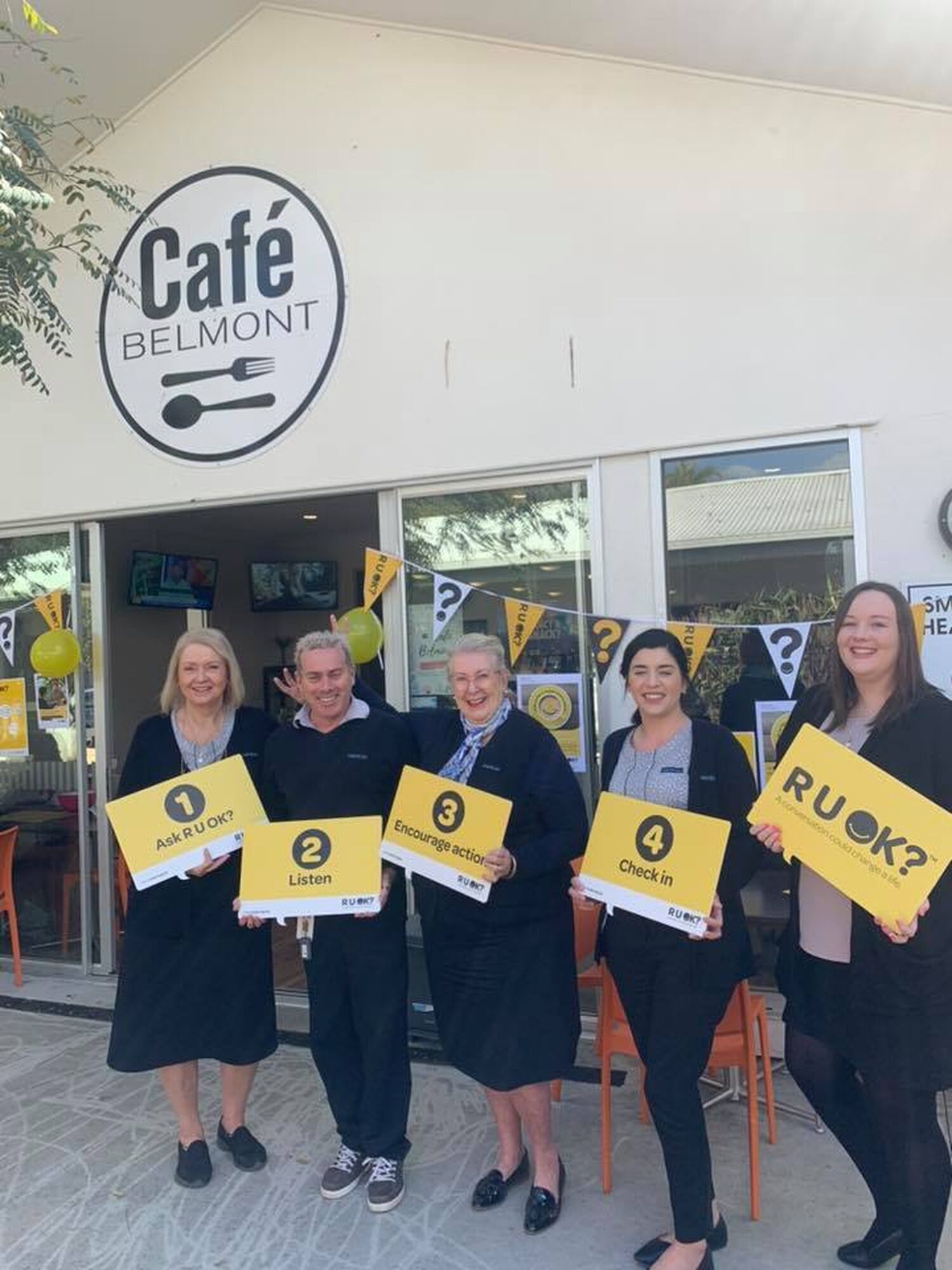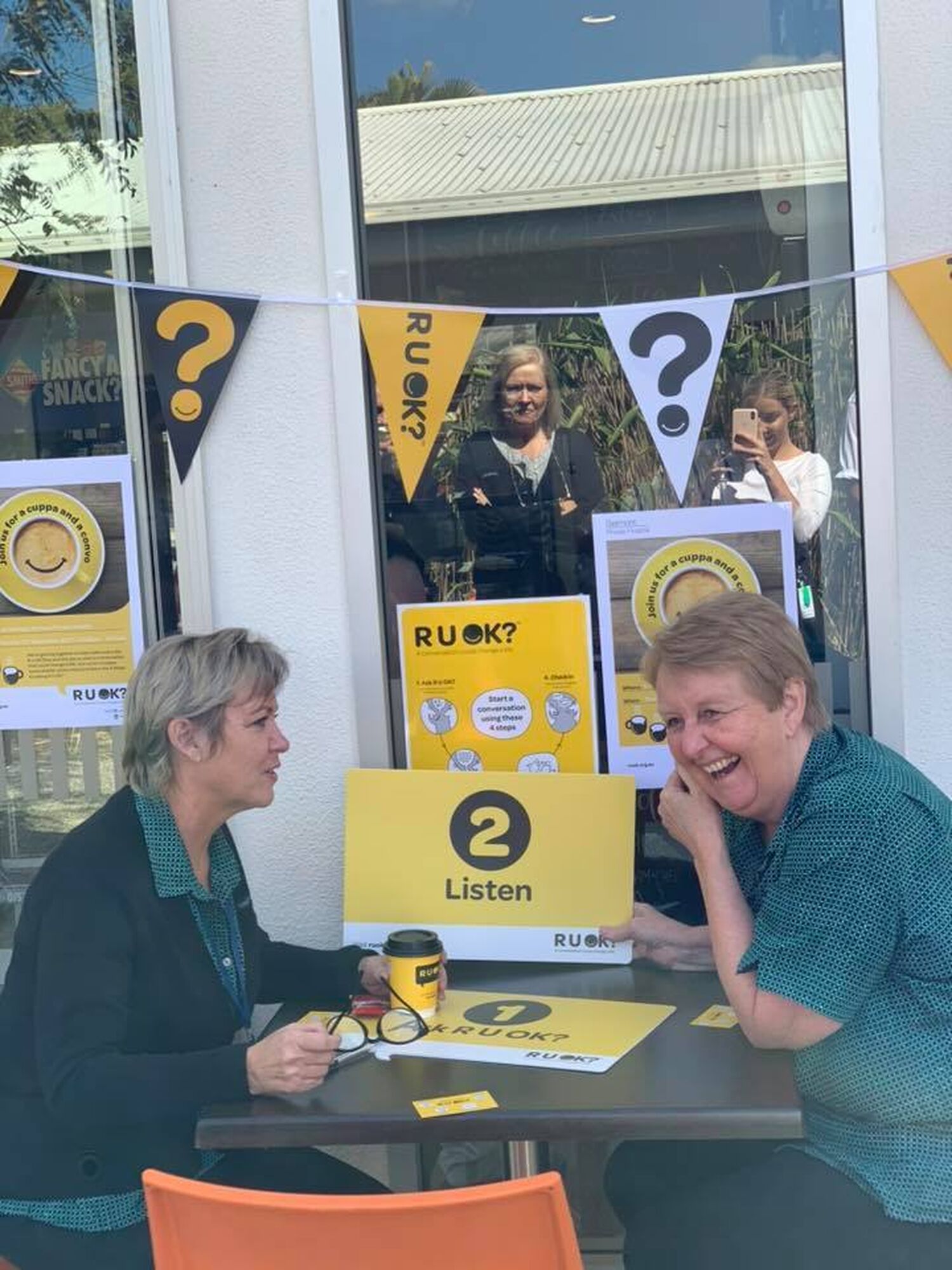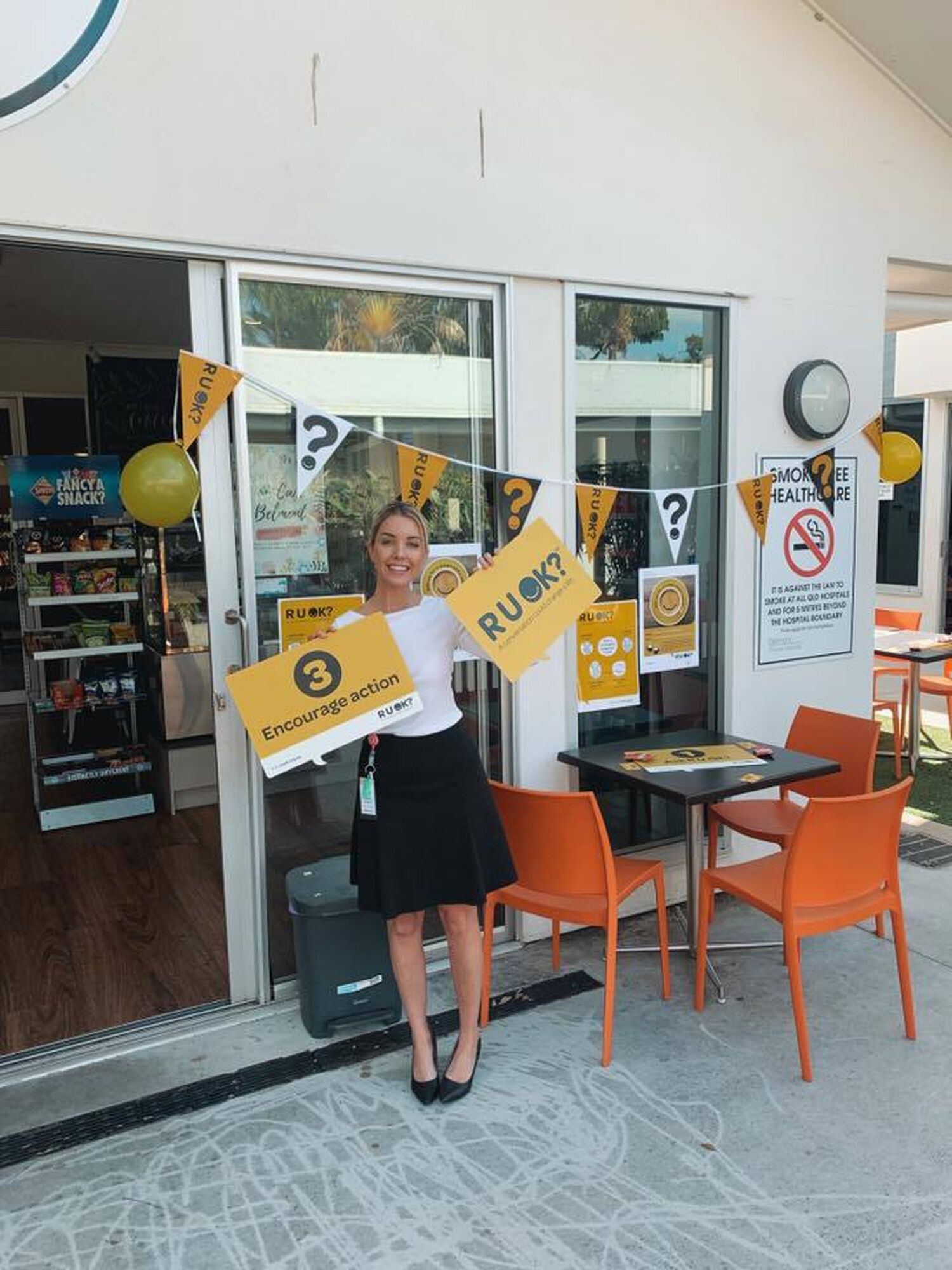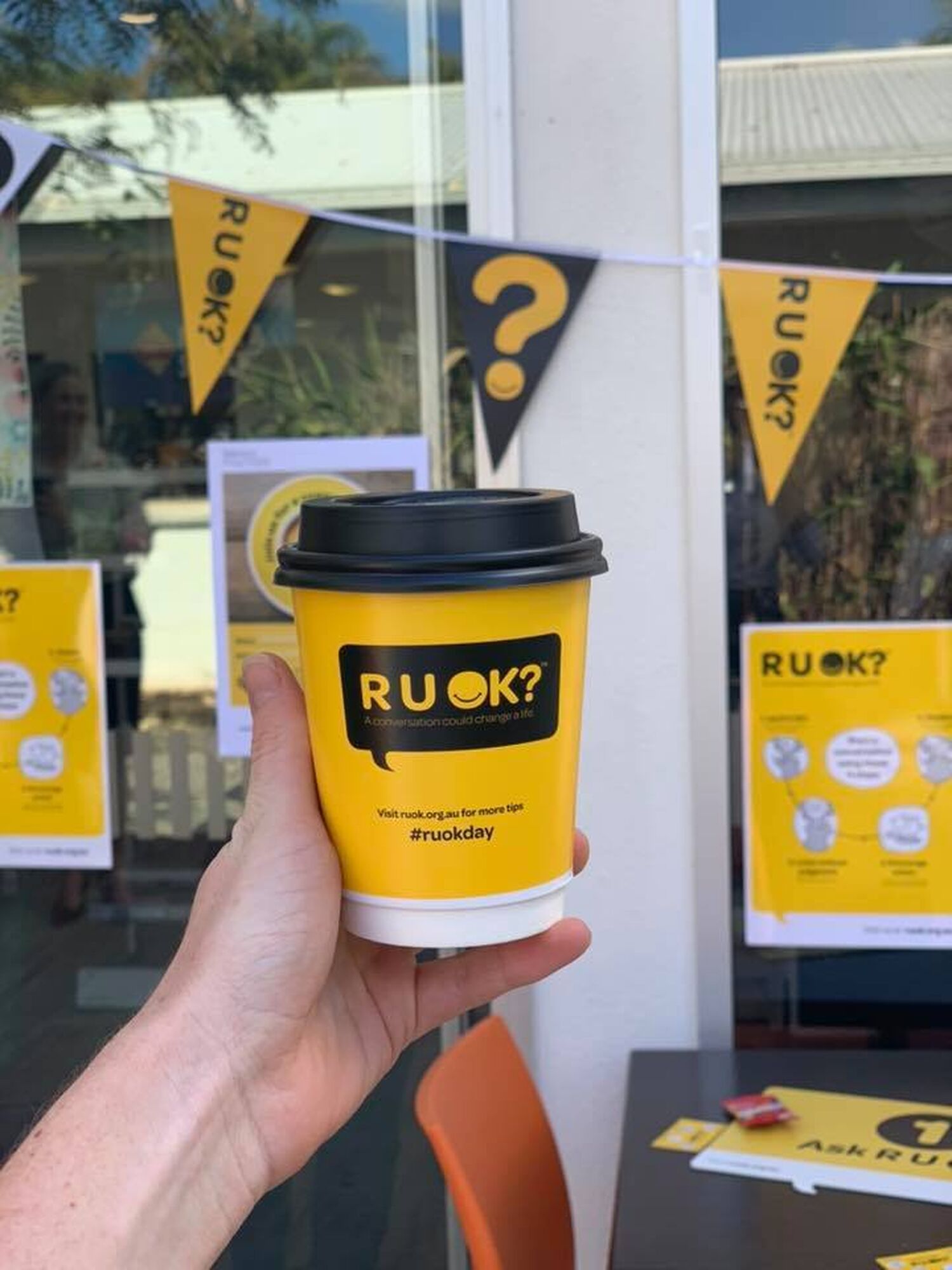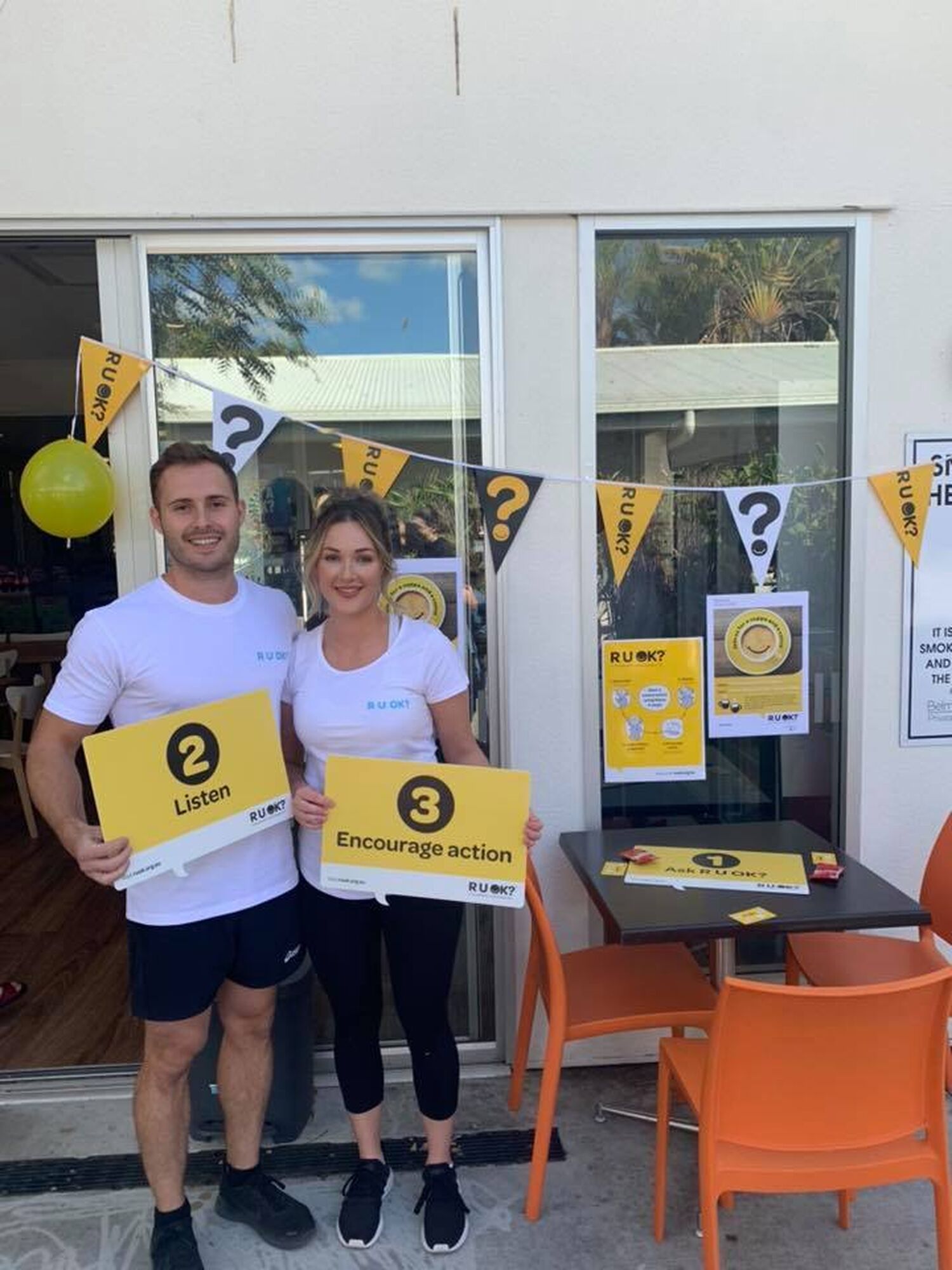Belmont Private ask, R U OK?
September 12, like any day, is one for conversation and reaching out.
R U OK? Day has become Australia’s national day of action dedicated to reminding everyone to ask, “Are you OK?” and to remember every day of the year to support people who may be struggling with life’s ups and downs.
This year, Belmont Private Hospital supported R U OK? Day by hosting cuppa&convo stations at Café Belmont; a simple way to connect or reconnect with others.
With a great turn out from staff, visiting medical officers, patients, family and friends, our Belmont community joined together to enjoy a morning raising awareness about suicide prevention whilst encouraging the people around us to Trust the Signs, Trust your Gut & Ask R U OK? Every day.
As we are all encouraged to ask the question, "Are you okay?" we also took the time to look a little closer at the other side of that question - the answer. Asking the question seems simple . . . but what if it's not? What do you do if the answer is 'No'? It can be confronting to start a conversation with a loved one you’re worried about and part of this apprehension revolves around what to do if someone answers “No”. To help overcome this fear and respond safely and sensitively, we familiarised ourselves with R U OK?’s four-step framework to guide people through a conversation…
1. Ask R U OK?
Be relaxed, friendly and concerned in your approach. Help them open up by asking questions like "How are you going?" or "What’s been happening?"
Mention specific things that have made you concerned for them, like "You seem less chatty than usual. How are you going?"
2. Listen
Take what they say seriously and don't interrupt or rush the conversation.Don’t judge their experiences or reactions but acknowledge that things seem tough for them.
If they need time to think, sit patiently with the silence.
Encourage them to explain: "How are you feeling about that?" or "How long have you felt that way?"
Show that you've listened by repeating back what you’ve heard (in your own words) and ask if you have understood them properly
3. Encourage action
Ask: “What have you done in the past to manage similar situations?”Ask: “How would you like me to support you?"
Ask: “What’s something you can do for yourself right now? Something that’s enjoyable or relaxing?”
You could say: "When I was going through a difficult time, I tried this... You might find it useful too."
If they've been feeling really down for more than 2 weeks, encourage them to see a health professional. You could say, "It might be useful to link in with someone who can support you. I'm happy to assist you to find the right person to talk to.”
Be positive about the role of professionals in getting through tough times
4. Check in
Pop a reminder in your diary to call them in a couple of weeks. If they're really struggling, follow up with them sooner.You could say: "I've been thinking of you and wanted to know how you've been going since we last chatted."
Ask if they've found a better way to manage the situation. If they haven't done anything, don't judge them. They might just need someone to listen to them for the moment.
Stay in touch and be there for them. Genuine care and concern can make a real difference.
Remember, in the time it takes to have a cuppa, you could start a conversation that could change a life. Whenever you notice a change, no matter how small, we want you to trust your gut and start an R U OK? Conversation. Help us spread the word and make time for a cuppa and a convo with the people who matter most, not just on R U OK? Day, but every day.
R U OK? is encouraging all Australians to learn the signs, download a practical toolkit and start regular meaningful conversations throughout their communities when its needed. More information on how to get involved can be found at: ruok.org.au. If you or someone you know is struggling, support is only a call away. Phone our dedicated Admissions and Assessment Team today on 1800 700 274.
